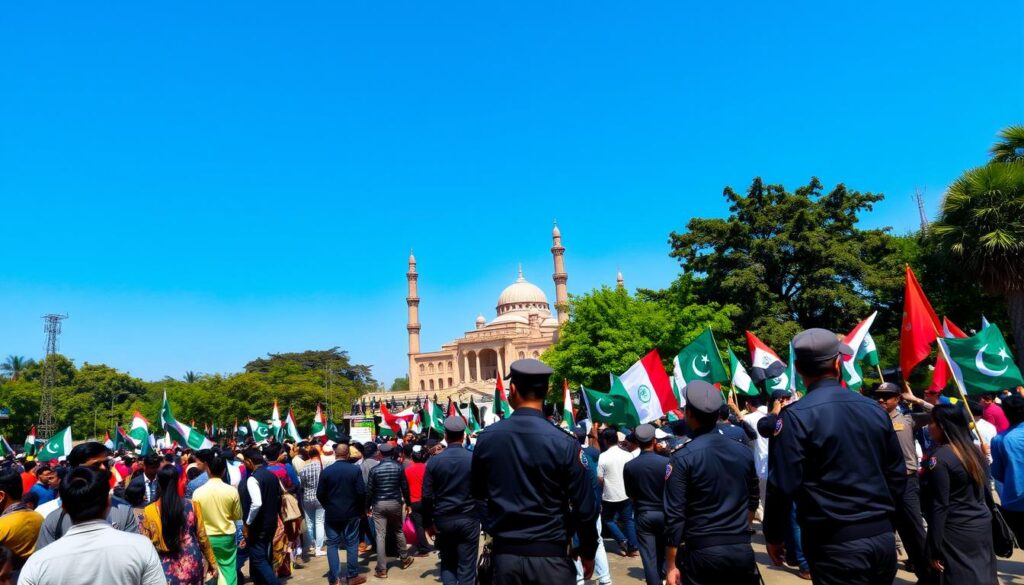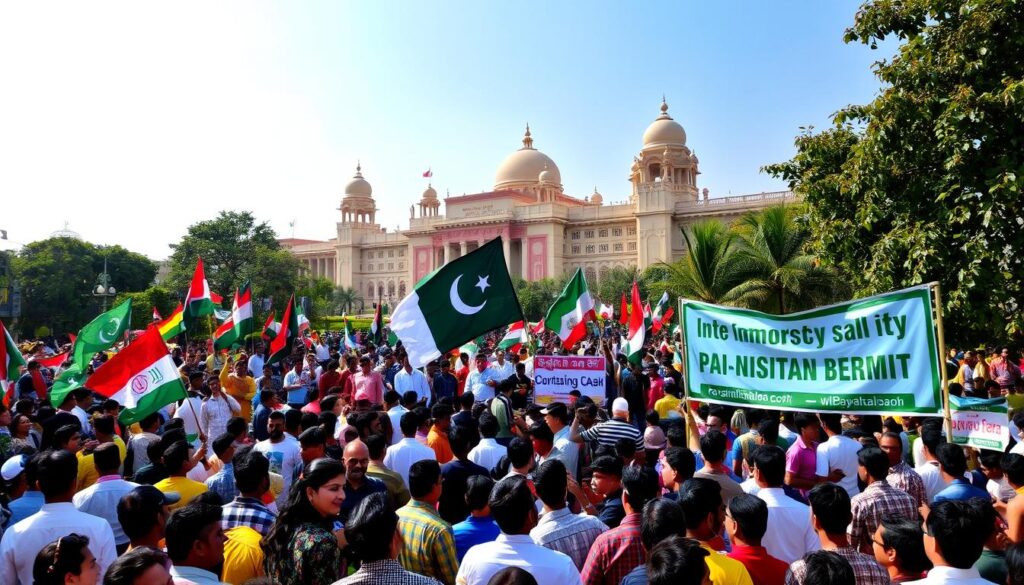President Zardari of Pakistan has brought in new rules for Islamabad rallies and public gatherings in Islamabad. This move aims to keep the peace and ensure rallies are well-organized. The changes come after concerns about the recent rallies in Islamabad.

Key Takeaways
- President Zardari has updated the code of conduct for Islamabad rallies and public gatherings.
- The new regulations aim to uphold law and order during political rallies in Islamabad.
- The revised rules are a response to concerns over the management and security of recent Islamabad rallies.
- The goal is to facilitate peaceful and organized public gatherings in the nation’s capital.
- The changes have drawn mixed reactions, with some opposition parties raising concerns over potential restrictions.
Zardari Revises Code of Conduct for Islamabad Political Rallies
President Zardari has led Pakistan’s government in making a new code for political rallies in Islamabad. This code aims to keep the peace and protect everyone involved.
Stricter Regulations Aim to Maintain Law and Order
Now, rally organizers must give notice before their events and manage the crowd better. They also have to limit loud sounds. The government says these rules are needed to keep things calm and avoid trouble.
Opposition Parties Raise Concerns over Potential Restrictions
Opposition parties think these new rules might stop them from having big rallies in the capital. They worry that these changes could limit their right to peaceful gatherings and free speech.

“The new regulations seem to be an attempt to curtail our right to voice our concerns and mobilize our supporters. We will carefully examine these changes and explore all legal avenues to ensure our democratic rights are protected.”
– Opposition Party Leader
Historical Context: Rallies and Protests in Pakistan’s Capital
Islamabad, Pakistan’s capital, has seen many political rallies and protests. These events let both ruling and opposition parties share their views and gain support. The city’s streets have been filled with big gatherings. These often highlight political tensions and concerns about crowd control, security, and possible fights between supporters and opponents.
The new rules set by President Zardari aim to make rallies peaceful and orderly in the capital. This shows how important these events are in Islamabad’s politics. It also shows the effort to balance the right to gather and keep everyone safe.
“Rallies and protests are key to Islamabad’s politics, but we must make sure they’re safe for everyone,” said a local political analyst.
The government and opposition are working to find a balance. The history of rallies and protests in Islamabad is key in these talks and decisions. It helps shape the city’s political scene.
Balancing Public Safety and Right to Assembly
President Zardari has introduced a new code of conduct. It aims to balance public safety with the right to gather and speak out. Some see the stricter rules as a way to limit free speech. But the government says these rules are needed to stop violence at big gatherings in Islamabad.
Both the ruling party and the opposition will watch how these rules work. They worry about how they might affect public order and political freedom. The government wants to keep things peaceful. The opposition fears these rules could stop them from rallying supporters in the capital.
The debate is ongoing. It’s important for the authorities to respect both security needs and constitutional rights. The key to success lies in talking with all sides. The government must show that the new rules are fair and needed, not just a way to silence critics.
Under President Asif Ali Zardari, Islamabad rallies have come under new conduct rules aimed at maintaining public order and ensuring safety during demonstrations. These regulations require organizers to obtain prior approval for rallies, outlining specific routes and times to minimize disruption. The government emphasizes the need for peaceful assembly, mandating that all participants refrain from any violent actions or hate speech. Additionally, security measures have been heightened, with law enforcement agencies instructed to monitor events closely and intervene if tensions escalate.
Critics argue that these rules may infringe on the right to free expression, fearing they could stifle dissent. Supporters, however, contend that such measures are essential for safeguarding public safety in a politically volatile environment. As protests remain a vital part of Pakistan’s political landscape, the balance between regulation and freedom of expression continues to be a contentious issue, reflecting broader societal challenges within the country.
